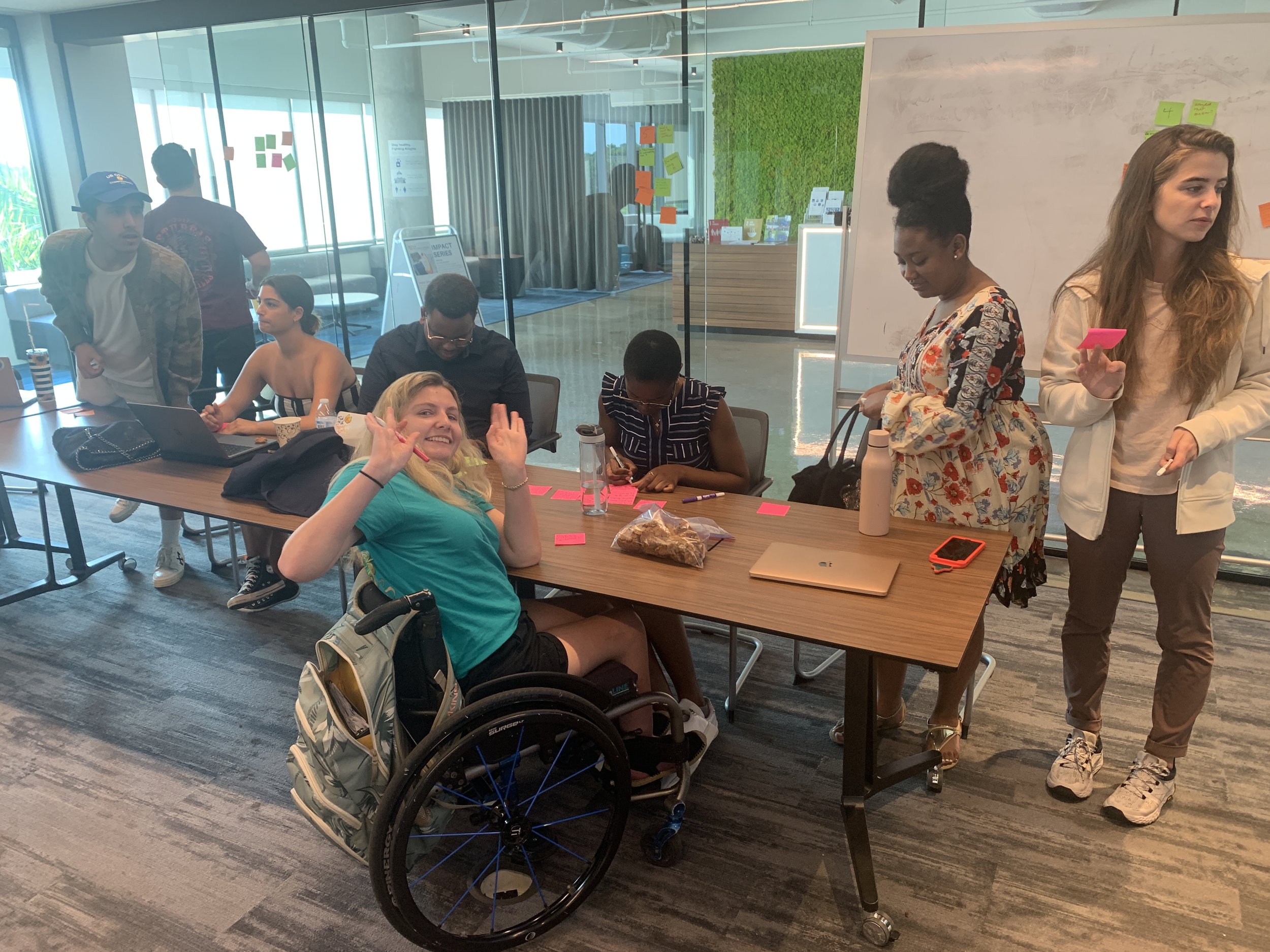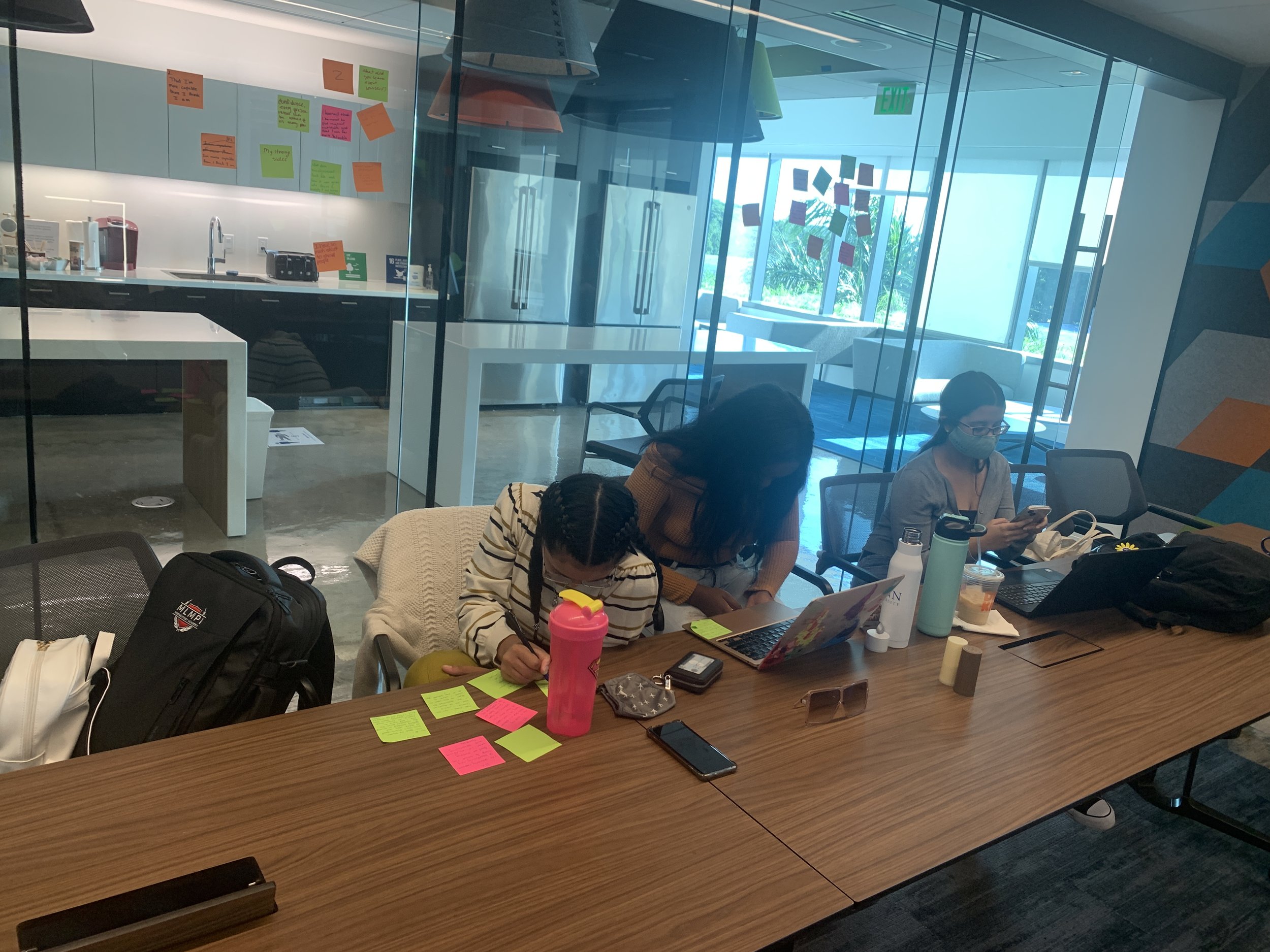I recently collaborated with a small group of scholars from the Watson Institute at Lynn University, a social impact incubator program that is part of the university’s business school. At Watson, students “major in their mission.”
Our purpose together? To prepare the class of 16 seniors for post-graduate and professional life through intensive, high-impact storytelling.
By the end of our 4-week course, each scholar launched a professional website or online “portfolio” with the story of who they are, what they do, and most importantly, why.
IMO, this is the most important class of their college career.
Why?
Because the #1 mistake I see nonprofits and creatives make?
Assuming people understand
who they are,
why they do what they do, and
why it makes impact.
When the truth is:
No story, no supporters. No champions.
No (t enough) funding. Small (er than necessary) impact.
My work with hundreds of nonprofits and creatives has consistently proved one thing:
If you don’t learn to practice storytelling as part of your everyday work,
what you can accomplish will be so much less
than what you could accomplish.
Because story is how people:
find,
understand,
fall in love with, and
support what you do.
---
Here are 4 key takeaways (from among many beautiful ones) these young changemakers shared with me about the value of storytelling—and what that means for you and your work.
1. How you show up (and that you show up) matters.
It’s instructive to learn how others perceive you and your work by doing a simple Google search of your name and area of focus or location. If you are looking to build an audience or land projects, the Internet is the first place where people will turn, to see if you’re legit and if you’re someone they want to collaborate with.
If you’re not visible, or if what comes up on the Internet isn’t what you would choose for yourself, all is not lost. Find a way to show up digitally, or create a path through which you can take back the narrative.
How? Create content, a body of work, or centralize the amazing work you’ve done in one location. Create a “digital shingle” where people can find more about you than your mom’s Facebook comments, your high school volleyball team photos, or a LinkedIn page that has no photo, no info about your professional life, and no activity since 2017.
2. Feedback is gold.
Sometimes seeking feedback can feel like setting up a date with a grizzly bear—you won’t know how it’s going to go until it happens. But to evolve and gain mastery in your pursuits and your career, feedback is essential.
A lot of people avoid giving feedback because they’re afraid they will be less likable if they are honest. Others give “nice” feedback that sounds good, but doesn’t really help the other person address areas where they could grow and progress toward mastery.
Learning how to give and receive process-oriented feedback is a timeless skill. Seek opportunities to receive feedback often, and bake such input into the success of your teamwork and projects.
Why the focus on process-oriented feedback? Giving process-oriented feedback takes the focus away from who, and focuses it on the how. Looking at execution and how that execution could be improved means the input is much more likely to be helpful and actionable, and much less likely to come off as judgment or something that could be taken personally.
Bonus: taking the time to give feedback is generous. Being on top of your game means expressing thanks to the person giving you that input, even if you don’t like what they say. Gratitude is flattering on everyone.
3. Every experience and interaction counts. And your digital presence is as important as your in-person presence.
Every point of digital or in-person contact creates or reinforces a connection, a narrative, trust, and closeness…or the opposite. Your online presence, including the websites affiliated with your name and work, the tone and content of your public comments, and the look and feel of your social media account content, is just as important these days as getting to know you in person. You will be seen, even if you try and hide. It's better to accept this, and work with it rather than resist, especially if you are seeking opportunities.
Think about whether you have a reputation for being late, missing deadlines, avoiding communication when you are behind on something, not responding to emails, looking thrown-together, or lacking presence. The truth is, whether or not you realize it, people notice when you’re phoning it in, being less than genuine, or not caring, both in-person and online. This is your chance to turn that around!
Decide what reputation you want to have, and make a list of ways you can reinforce that desired reputation, both in-person and online. If you aren’t where you want to be and you want to make changes, you can start anytime. Ideas: a) Be thoughtful, b) Check your spelling and grammar, especially on important public-facing materials, c) Be timely, d) be gracious, generous, and humble. Remembering someone’s birthday and sending them an article that reminds you of a conversation you had with them goes a long way toward creating the kind of reputation you want to have.
4. Introspection helps you recognize what doesn’t align.
In a fast-paced, visually-saturated, distraction-oriented world, it’s easier than ever to get pulled into rabbit holes and forget where you’re headed. Living in the day-to-day also means it’s easy to lose track of what’s important, what you stand for, and to maintain perspective on how your small actions add up to become bigger things. Not to mention, in a consumer-oriented world full of other people’s calls to action, you can lose sight of your inner guidance.
Practicing introspection isn’t where the party is ever going to be, because it’s quieter, much more solo-oriented, inner work.
But introspection is a helpful tool you can use to make sense of your choices, crystallize what you have learned, assess your current path and where it’s headed, and reconnect with your inner “north star” or your values. Introspection is a powerful way to practice self-honesty. It can help you reassess, reframe, and recalibrate your approach if you find you’ve fallen off your path.
Whether or not you’re creating a digital portfolio, I hope you find these insights from young innovators as helpful as I did. In the end, each of us is telling a story, and living in the digital age means that story will eventually leak into the metaverse, where people will have opinions about your digital fingerprints. That’s why a success-on-purpose approach to your story and how it manifests online is so important.
If you’d like to nerd out about storytelling and presence, ask questions, or share your experiences, please leave a comment or email me to start a conversation!
Thanks for being here—and being a big part of my story, my work. I’m immensely inspired and thankful for you!




